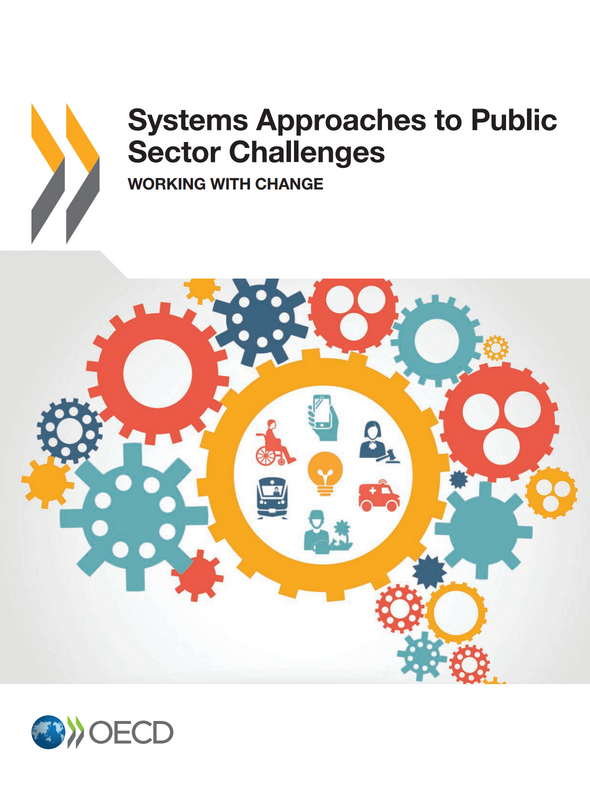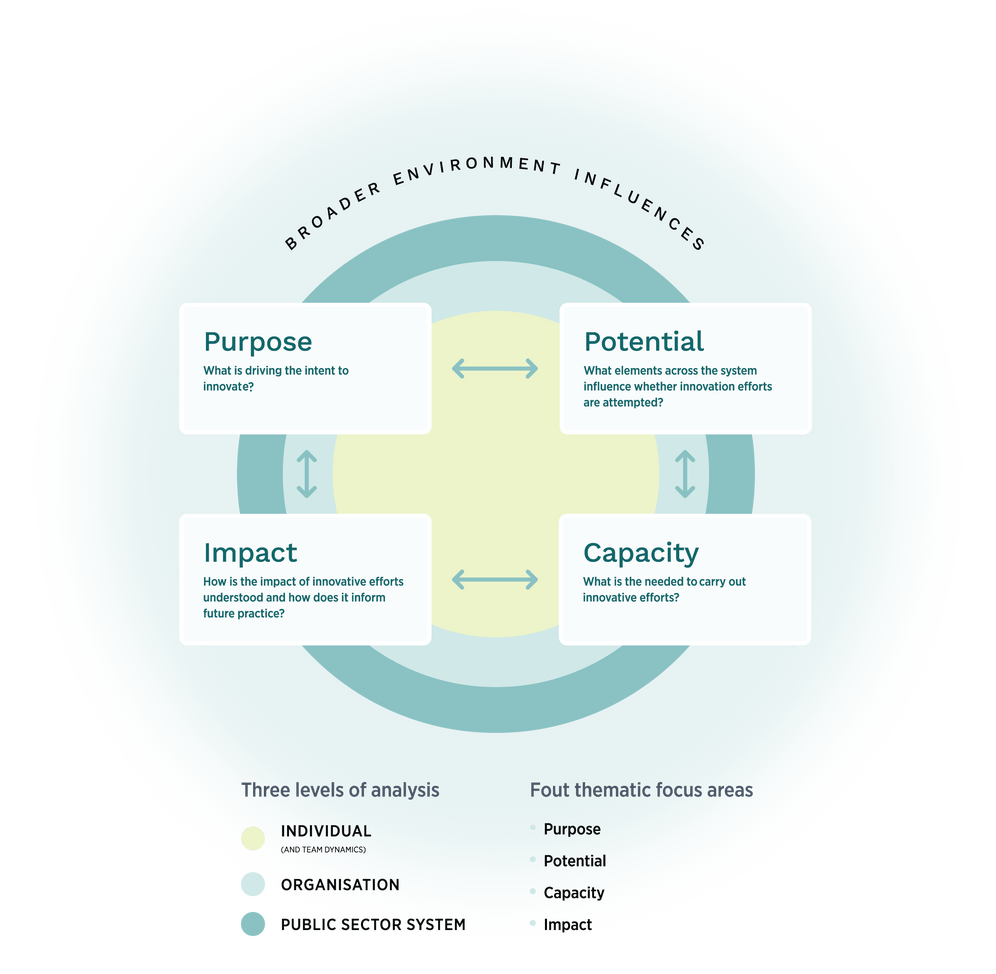
Blog
Innovation labs can’t do it all…
Written by Malcolm Beattie and Heather Buisman | 16 January 2025
This website was created by the OECD Observatory of Public Sector Innovation (OPSI), part of the OECD Public Governance Directorate (GOV).
Validation that this is an official OECD website can be found on the Innovative Government page of the corporate OECD website.

About Systems Approaches

Systems thinking is an underlying philosophy that recognises and take into account the complexity of the world. It takes a deep dive at understanding how current structures often unknowingly shape the world in which we live, making it easier to identify the areas which are hindering positive change. In doing so, systems thinking brings problems to the surface, making it easier for governments to collectively develop, influence and shape solutions, including in relation to grand missions, policy domains and governments themselves.
“By understanding and changing structures that are not serving us well (including our mental models and perceptions), we can expand the choices available to us and create more satisfying, long-term solutions to chronic problems.”
– Michael Goodman, systems thinking practitioner
The complexity of contemporary challenges risks widening the gap between the problems governments must address and their capacity to do so. With the rise of globalisation, burgeoning technology, volume of information, evolving environmental crisis, issues have spread from the national to the global level, from relative isolation to being highly interconnected and interdependent. At its core, these challenges concern systems, systems which have gained in complexity and changes in unexpected ways – they are influenced by context, actions and stakeholder perspectives and often relate to, reinforce or work in conflict with other solutions, interventions and actions taken.
For governments to be able to adapt and bring positive change for societies, new approaches need to be formulated and embraced. The rigidity of traditional approaches to policy-making, public administration and problem solving often fall short in this context. Governments need holistic, adaptive and anticipatory approaches that not only focus on new policies, practices and products, but also on how these interact with each other and the wider system in which they operate.
Systems thinking is ever more crucial as governments face wicked problems such as climate change, gender inclusivity, resilience and aging populations. These issues occur within complex systems, which can be defined as multiple elements. These elements interact with each other, often in uncertain ways, and can together produce effects or influence related elements of a system. However, changing the interactions between elements in a well-established and complex systems is not easy.
Traditionally, public policy makers have addressed social problems through discrete, layered interventions. However, these may cause unintended or unexpected consequences in other parts of the system, or address symptoms while ignoring causes. Systems thinking acknowledges these interconnections and interdependencies and seeks to address the whole system. This further requires new ways of thinking, examining problems, looking at the world and acting in a bold and informed manner to challenge public sector policymaking and design and create new patterns across the whole system for the betterment of policy outcomes.
OPSI’s flagship report on Systems Approaches serves as a primer on systems thinking and explains how it applies to the complex challenges faced by the public sector.


In order to apply systems approaches to policymaking, capacity needs to be built. Policymaking and implementation does not happen in a vacuum – it happens within existing, often constrained, public sector systems. Innovative efforts or approaches that are inconsiderate of the complexity of the public sector system and implemented in a haphazard way are destined to fail. As such, it is important for governments to systemically strengthen their capacity to leverage innovative practices, including systems approaches.
OPSI’s Innovative Capacity Framework helps governments understand how innovation capacity can be nurtured in the entire public sector system. It recognises and accounts for the interaction with other key governance mechanisms – such as regulations, digital policy, open government, service design and more – as well as the need for innovation to be embedded in the daily functioning of government or the operating environments of policy systems. The Framework sheds light on how innovative capacity is shaped into government systems and can be an asset, driver and lever for change, as opposed to an afterthought. By understanding how government systems (their processes, multiplicity of actors, different drivers, purposes and practices) work to achieve public outcomes, it is possible to tackle root causes, not just symptoms, and ultimately overcome silos, tackle complex problems and improve public life.
Mission-oriented innovation and innovation ecosystems are prime examples of the multiplicity of actors, motivations and change drivers that exist and need to be empowered in a larger governance context. By developing ambitious missions or building innovation ecosystems, governments can take advantage of the strengths of actors across entire systems in ways that would not be possible within the confines of the public sector. These approaches leverage co-creation, collaboration and diverse expertise to collectively work towards better outcomes for all.
